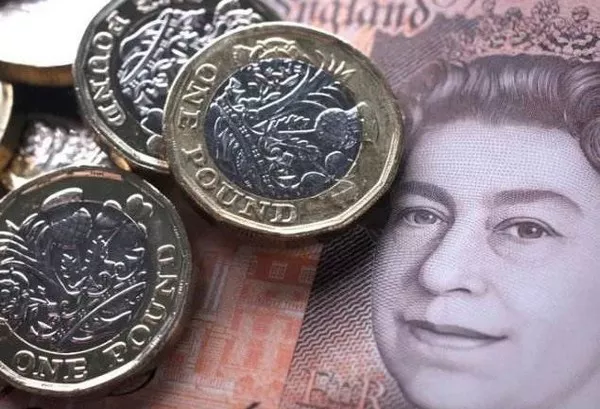In the volatile world of currency markets, predicting the future strength of a currency like the British Pound (GBP) requires a careful analysis of various factors, ranging from economic indicators to political events and global market trends. This article aims to provide a comprehensive overview of the current state of the Pound, analyzing key indicators, examining political and global market dynamics, and offering expert predictions and practical advice for investors and businesses.
Current State of the Pound
The Pound’s recent performance against major currencies has been mixed, reflecting the uncertainty surrounding Brexit and the ongoing impact of the COVID-19 pandemic. In 2020, GBP experienced significant volatility, plummeting to multi-year lows against the US Dollar (USD) and Euro (EUR) as the pandemic wreaked havoc on global economies. However, since then, it has shown some resilience, buoyed by vaccine rollouts and economic recovery efforts.
Economic Indicators
Economic indicators play a crucial role in determining currency strength. Inflation rates, interest rates, GDP growth, and employment figures provide insights into the health of an economy. In recent months, the UK has witnessed a surge in inflation, driven by supply chain disruptions and rising energy prices. However, the Bank of England has signaled its willingness to tolerate temporary inflationary pressures, keeping interest rates low to support economic recovery.
GDP growth has been robust but uneven, with certain sectors experiencing faster recovery than others. Employment figures have improved steadily, although concerns linger about the long-term impact of job losses and labor market participation rates.
Political Climate
The political landscape, particularly Brexit implications and government policies, can significantly impact currency strength. While the UK formally exited the European Union (EU) in January 2020, uncertainties surrounding trade agreements and regulatory frameworks continue to weigh on investor sentiment. Ongoing negotiations with the EU and other trading partners remain key determinants of the Pound’s future trajectory.
Domestic policies, including fiscal stimulus measures and regulatory reforms, also influence currency dynamics. The government’s commitment to infrastructure investment and green initiatives could bolster investor confidence and stimulate economic growth, potentially strengthening the Pound.
Global Market Trends
Global market trends and international trade relations exert a considerable influence on currency markets. The resurgence of protectionist policies, geopolitical tensions, and shifts in global supply chains can disrupt trade flows and investor sentiment. Additionally, developments in major economies such as the United States and China can indirectly impact the Pound through their effects on global financial markets.
The UK’s trade relationships post-Brexit, particularly with the EU and key trading partners, will continue to shape the Pound’s performance. Any breakthroughs or setbacks in trade negotiations could trigger significant currency fluctuations.
Expert Predictions
Forecasts from financial institutions and currency analysts provide valuable insights into future currency movements. While predictions vary, many experts anticipate a gradual strengthening of the Pound in the medium to long term, supported by economic recovery, vaccine rollouts, and progress in trade negotiations. However, uncertainties surrounding Brexit and global economic conditions introduce significant risks to these forecasts.
Historical Data
Examining historical trends offers valuable context for understanding current predictions. The Pound has experienced periods of volatility and stability throughout its history, influenced by factors such as wars, economic crises, and political developments. Historical data underscore the resilience of the Pound and its ability to rebound from periods of weakness.
Investor Sentiment
Investor confidence and speculative trading play a crucial role in currency markets. Positive economic indicators and political stability can attract foreign investment, driving demand for the Pound and contributing to its strength. Conversely, geopolitical uncertainties and economic risks can lead to capital outflows and currency depreciation.
Potential Risks
Identifying potential risks is essential for assessing the outlook for the Pound. Brexit-related uncertainties, including trade disruptions and regulatory divergence, pose significant challenges to the UK economy. Rising inflationary pressures, geopolitical tensions, and global economic slowdowns also represent risks to currency stability. Moreover, unexpected events such as natural disasters or geopolitical conflicts can trigger sharp currency fluctuations.
Opportunities for Strength
Despite the challenges, several factors could contribute to a stronger Pound in the future. Continued progress in vaccine distribution and economic recovery efforts could boost investor confidence and stimulate growth. Improved trade relations with the EU and other trading partners could enhance market sentiment and support currency appreciation. Moreover, structural reforms and investments in innovation and infrastructure could strengthen the UK’s competitive position in the global economy.
Practical Advice
For individuals and businesses navigating currency fluctuations, proactive risk management is essential. Diversifying currency exposure, hedging against exchange rate volatility, and staying informed about economic and political developments can help mitigate risks. Moreover, seeking guidance from financial advisors and currency experts can provide valuable insights into market dynamics and potential opportunities.
SEE ALSO Will GBP Rise Against USD in 2024? Predictions & Strategies
In conclusion, while the future strength of the Pound remains uncertain, a thorough analysis of economic indicators, political events, global market trends, and expert predictions can inform investment decisions and risk management strategies. By staying informed and adaptable, investors and businesses can navigate currency fluctuations and capitalize on opportunities in the dynamic world of currency markets.


